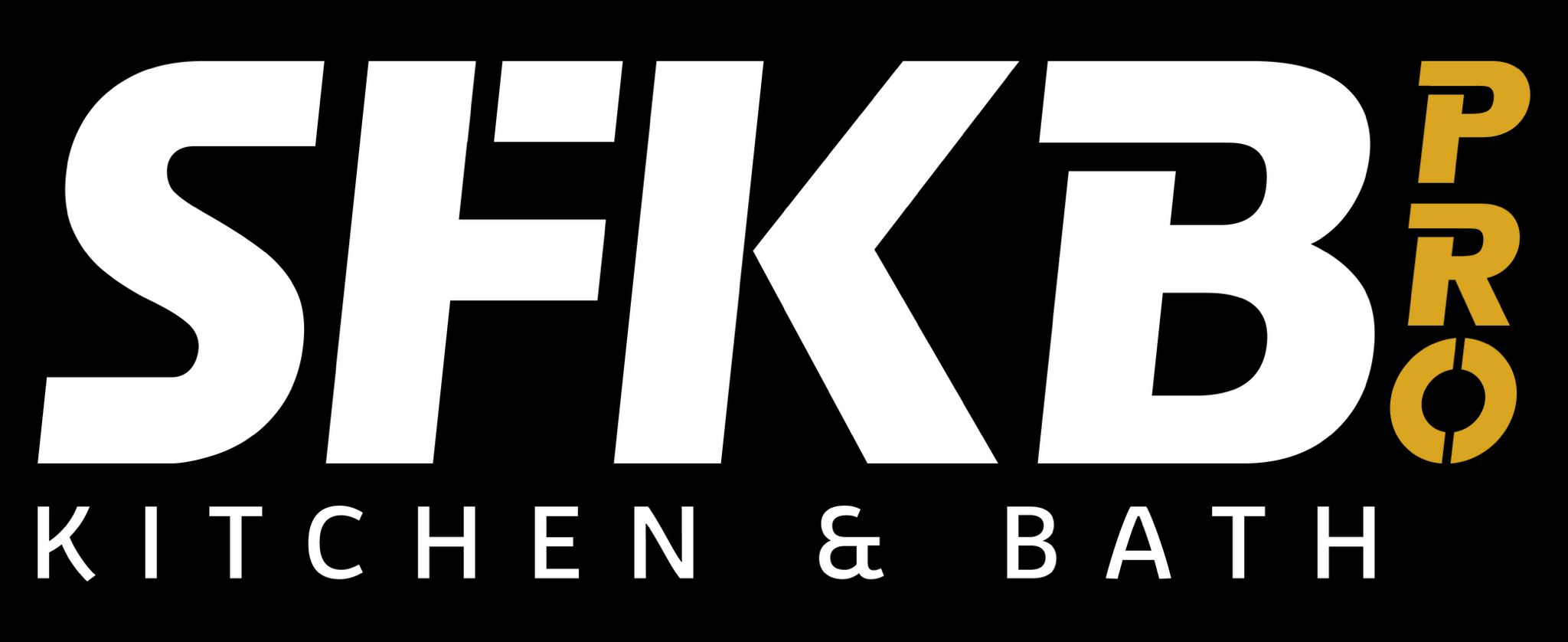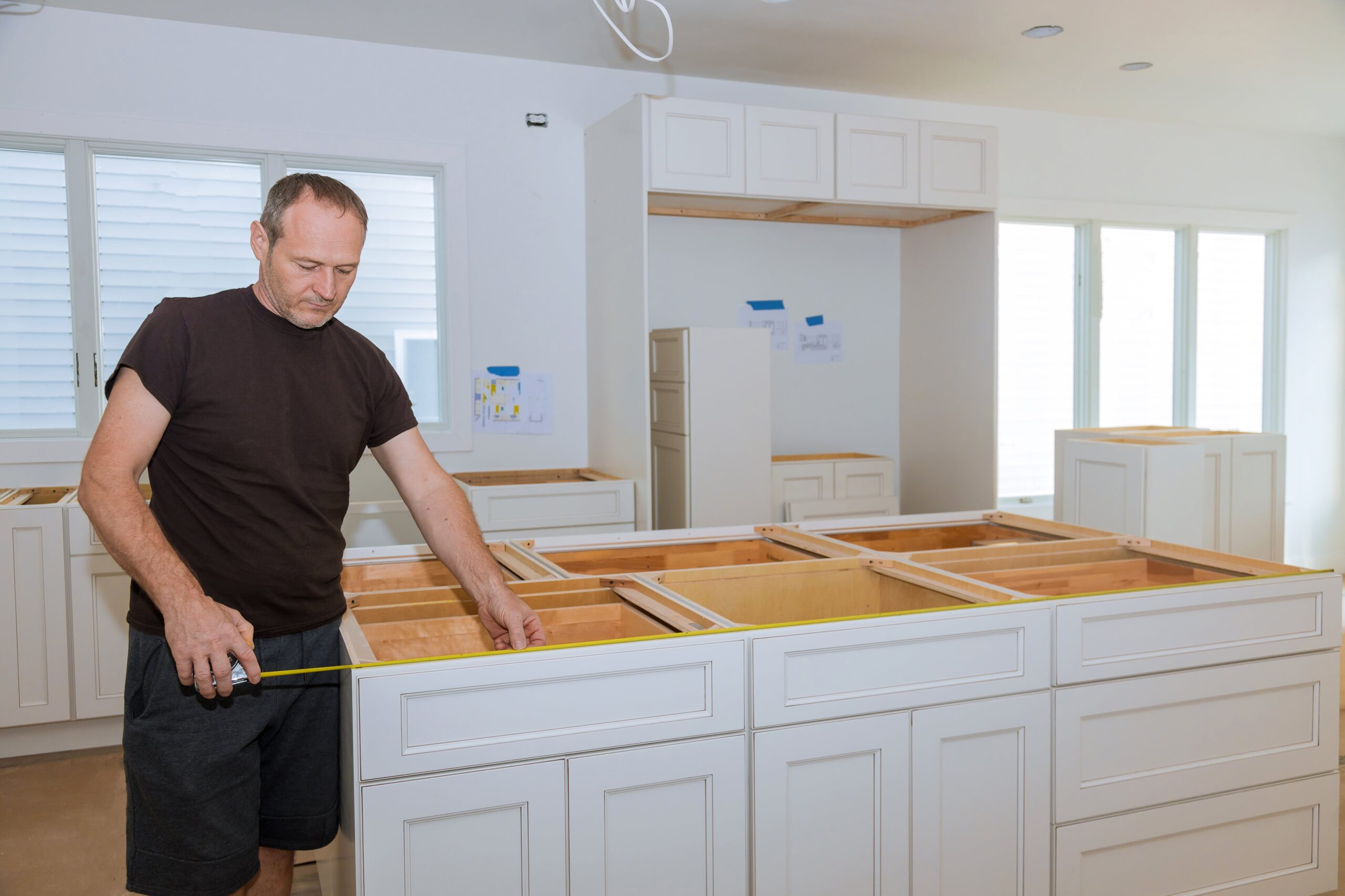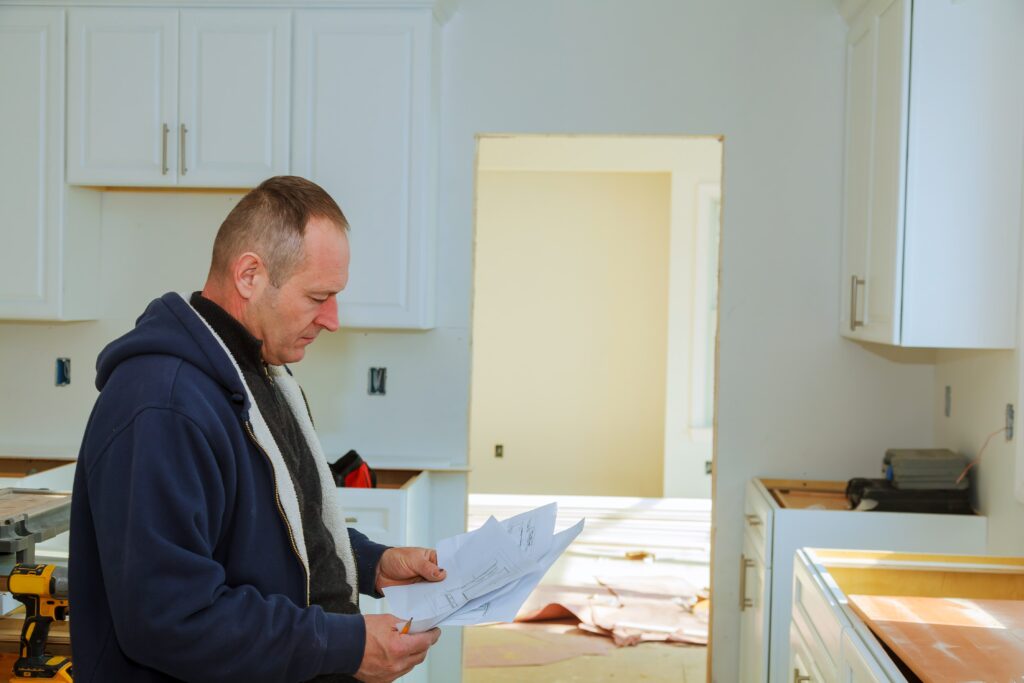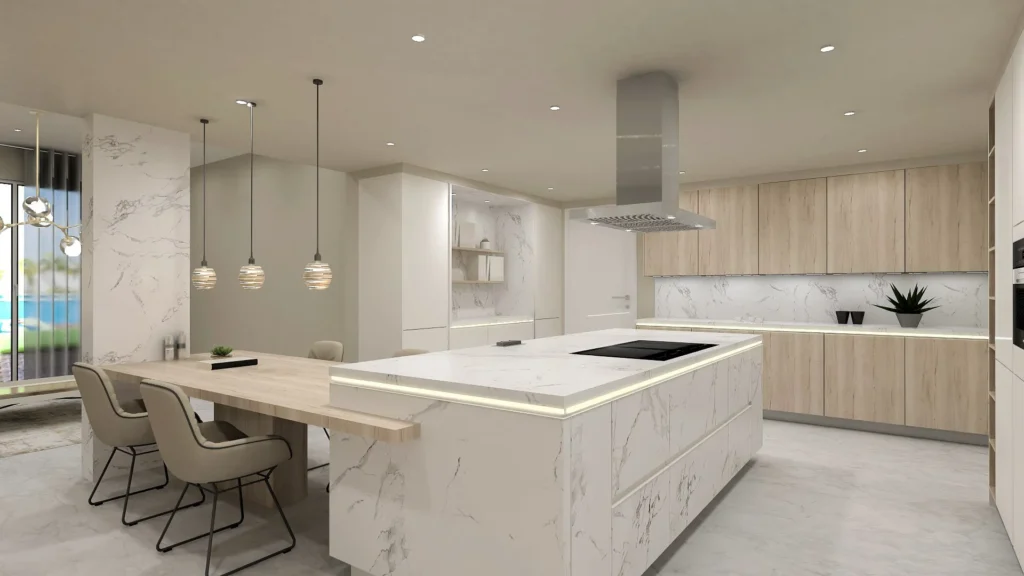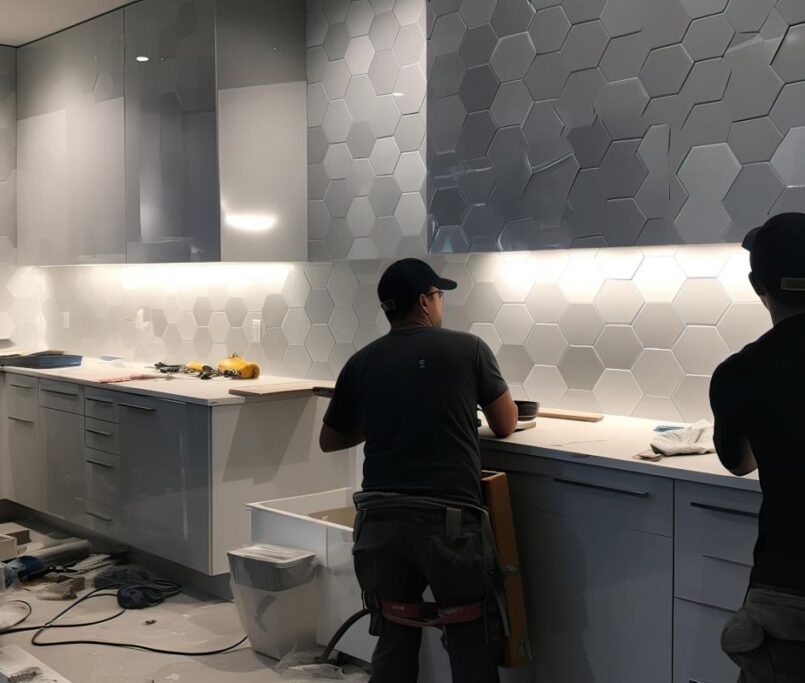Do You Need a Permit to Remodel a Kitchen? Essential Guidelines Inside
Introduction:
Renovating your kitchen can be fun. But before you begin, you should ask yourself: do you need a permit to remodel a kitchen? This step is one a lot of people don’t do and then they start to have issues. They could be delayed, fined or even prosecuted.
Permits are important. They ensure the work is safe and the rules are followed. It also doesn’t hurt if you sell your home in the future.
This guide will clarify when you need a permit and when you don’t. It will also teach you how to comply with the rules, one step at a time. If you have a plan, your kitchen remodel can be a breeze.
Why You Should Care About Permits when Doing a Kitchen Remodel
It may sound like extra work to secure permits for a kitchen remodel, but guess what? They’re extremely important. Permits ensure the work is safe and complies with local laws. This also helps protect your family from issues such as bad wiring or shoddy construction. It also helps if you sell your house in the future.
Fail to secure a permit and you may face hefty fines, delays, or even be forced to do the work all over again. Permits also imply inspections. Inspectors do their part, and make sure everything gets done the right way. This ensures that your kitchen remodel is safe, and done correctly.
When a Kitchen Renovation Needs a Permit
Do you need a permit to remodel a kitchen? In most cases, yes. If you’re making larger changes, like moving walls, adding windows or doors or changing the floor plan, you will need a permit.
If you are dealing with electrical systems, such as if you are adding outlets, lights, or upgrading the panel, you will need an electrical permit. Plumbing work like the relocation of a sink, dishwasher, or gas lin,e requires approval as well. Even something as simple as a ventilator, like a range hood, may require a permit.
These permits ensure that your remodel is safe and up to code. Each city has its own requirements, so check with your local building department. Fail to obtain a permit, and you may be fined or delayed or run into trouble when selling your home.
Instances Where You May Not Need a Permit
In some cases, you don’t need a permit for minor home upgrades. That’s typically for work that doesn’t change the structure of your house or major systems like plumbing, electrical or heating.
Here are some projects that might not require a permit:
- Re-painting walls/wallpapering
- Putting in cabinets or counters
- Whether light fixtures, faucets, or appliances need replacing
- Going up or down a floor (provided it doesn’t alter the layout)
- Adding shelves or molding for decor
Whether you believe you need a permit or not, it never hurts to confirm with your local building department. Some projects would still require inspection or approval without a permit. It’s always good to double-check for safety.
What Happens If You Don’t Obtain a Permit?
Bypassing building permits may sound like a good way to save time and money. But it can create big problems. Here are a few of the risks of not obtaining permits:
- Safety problems: Permits ensure that structures are safe. And if you leave them out, your project may not be safety-compliant. This is dangerous for you as well as other users.
- Legal pain: Without permits, the city office might not allow your project. Imagine getting fined or having to take it all down.
- Difficult to sell your house: When you try to sell, it can be a turnoff to buyers if you’ve made changes that weren’t approved. They may insist you repair it or obtain permits prior to closing.
- No insurance help: If something does go wrong and you cause damage or are in an accident, your insurance might not cover you. You would need to pay for them yourself.
- Higher taxes: Unpermitted improvements can increase the appraised value of your home. This could also increase the property taxes you owe.
Permits can take time to get, but it’s worth it to avoid these headaches.
How to Obtain a Permit: Essential Guidelines
Do you need a permit to remodel a kitchen? It sounds a bit scary, but it’s not as difficult as you might imagine. It’s quite simple once you know the steps. Whether you are planning to do the work yourself or to hire a contractor, you must follow local regulations. This ensures your kitchen is safe and the work is legal.
Here is a quick, simple step-by-step guide to help you obtain a permit for your kitchen remodel.
1. Find Out What Kind of Permits You Need
The first is simple: Do you need a permit to remodel a kitchen where you live? If you’re doing extensive renovation work — for example, moving pipes, enlarging or shrinking windows, or taking down walls — you may. Here are some common permits:
- Permit for anything electrical –ie, adding lights or wires
- Plumbing permit – to relocate the sink or add water lines
- Mechanical permit (such as for new vents or air systems), etc.
But you may not even need a permit if you’re just painting or putting in new cabinets. You’d be best advised to check.
2. Call Your Local Building Department
Rules differ from city to city. To find out for sure, check with your local building department. They can answer the question, do you need a permit to remodel a kitchen in your area?
There are city websites in some cities where you can apply online. Others require you to go to an office. Be prepared to discuss what you’re working on and where you live. They might ask about:
- What kind of home do you live in
- What do you plan to change
- What the project could cost
3. Get Your Paperwork Ready
Filling out some forms and sharing your project plans are required to apply for a permit. These may include:
- Sketches of your kitchen design
- A to-do list of what you will change
- Your contractor’s name and license number (if applicable)
- A plan of the site if you’re doing anything outside
- Information about your appliances, lights, or windows
If you hire a professional contractor, they might be willing to take care of this for you. But if you’re doing it yourself, make sure it’s all clear and easy to read.
4. Turn In Your Application
Now that you have everything together, it’s time to apply. That might be something you have to do in person, or it could be accessible through an online portal — this varies city by city.
You’ll also be charged a fee when you apply. Once you submit everything, someone will review your application. They may have more questions or request minor revisions. This is okay!
And still perplexed, do you need a permit to remodel a kitchen if it’s only electrical or plumbing work? Yes—you usually do.
5. Wait for Approval and Get Inspections
Some permits move through quickly. Not to mention, some ages are better than others, especially when your remodel is a big one. You’ll get a permit once it’s approved. You need to have it where the work is happening.
The permit will include a set of inspections. Those take place at various stages of your project, such as after you run new wires or before you close up the walls.
If you are wondering, do I need a permit to redo my kitchen if I want to relocate everything? Yes, you probably will, and then inspections are a part of that the other way.
6. Finish the Work and Get Final Approval
Once your remodel is complete, schedule that final inspection. The inspector will verify that everything was built safely and properly.
If all goes well, they will close the permit. That means your kitchen remodel can move forward. Keep a copy of the final report. It can be helpful if you need to sell your home or require proof of employment. It also relates to the average cost of kitchen remodel in California.
So, do you need a permit to remodel a kitchen if you want to do things the right way? Yes—if you’re doing more than just small updates, it’s the smart (and legal) thing to do.
Final Tip: Work With a Pro if You’re Unsure
Do you need a permit to remodel a kitchen? Securing one can sound daunting, though a licensed contractor or architect can help make it smoother. They will understand the workings of your city’s building department. They’ll take care of the paperwork and deal with the inspectors. They’ll even ensure that your remodeling complies with the rules.
Even if you decide to do the work yourself, it’s wise to consult with a local professional first. This prevents you from making mistakes and keeps the project moving. With these steps, you can feel confident your kitchen is safe, approved, and long-lasting!
Tips for Navigating Local Permit Requirements
Remodeling your home can be fun, but those permits are really crucial. It can be inscrutable, but permits can be helpful in a number of ways:
- Keeps Your Family Safe: Permits ensure your renovation is safe and follows regulations. This is for your safety and your family’s.
- Stays Out of Fines and Trouble: You can be in trouble if you remodel without a permit. You might end up with big fines or legal troubles down the line.
- Preserve Your Home’s Value: Unapproved renovations may not be included when you sell your home. This may devalue it or create paperwork niggles on resale.
- Ensuring the Work is Good: Permits require inspections. These are inspections that make sure the work is safe and done the correct way.
- Assists With Insurance: If things go south, causing damage or injury, unpermitted work might not be covered by your insurance. Work permits indicate that the work was done correctly.
It may take some time to get the permits, but they’re worth it in order to keep your home safe and secure.
Opt for SFKB PRO for Easy Kitchen Remodeling
Level up your kitchen with SFKB PRO. Our staff is experienced. We make beautiful kitchens, perform, and stand the test of time. And, we make renovations easy and anxiety-free.
We do quality at SFKB PRO. We use the highest quality materials and workmanship available. Our goal is to make the process of remodeling as simple as possible for you. We are dependable communicators, with fair pricing, timely completion.
We specialize in custom kitchens that meet your needs and exceed your expectations. Whether you prefer contemporary or traditional, we bring your vision to life.
Let SFKB PRO assist you in designing your dream kitchen. Call today to set up a remodeling process that’s easy, smooth, and entirely your own.
FAQs
Are permits required on all kitchen remodels?
It is not all retrofitting a kitchen that requires a kitchen remodel permit. Cosmetic changes, such as using new cabinets or flooring, may not need one. But any major renovation involving structural considerations or electrical work usually does.
What work needs the right permits?
When adding new electrical wiring, changing kitchen layout, moving kitchen walls, or installing a new sink or new outlets, you’ll typically need to obtain permits. Local authorities might also demand permits for sewer lines, outdoor faucets or the upgrading of the electrical panel.
What are the reasons to follow local building codes?
Adhering to local building codes means that your home renovation meets safety requirements. Even a skipper required permits or performing unpermitted work could mean heavy fines, expensive delays, or dangerous situations, such as load bearing walls or lighting fixtures.
What are the reasons to follow local building codes?
Adhering to local building codes means that your home renovation meets safety requirements. Even a skipper required permits or performing unpermitted work could mean heavy fines, expensive delays, or dangerous situations, such as load bearing walls or lighting fixtures.
Conclusion
Well, do you need a permit to remodel a kitchen? In most cases, yes — especially if your project will be changing electrical, plumbing, structural, or HAC systems.
Permits aren’t just a bunch of paperwork; they’re protecting your safety, your home’s value, and your peace of mind. Skipping them might sound easier, but you could end up paying fines, experiencing delays or encountering issues when selling your house.
The good news is, it needn’t be so hard to get a permit. If you receive the right guidance or the help of pros like SFKB PRO, you can make the process work to your advantage. Be sure, however, to always verify with your local building department, follow the steps, and when in doubt, consult with a licensed pro to make sure your remodel is safe, legal and solid.

